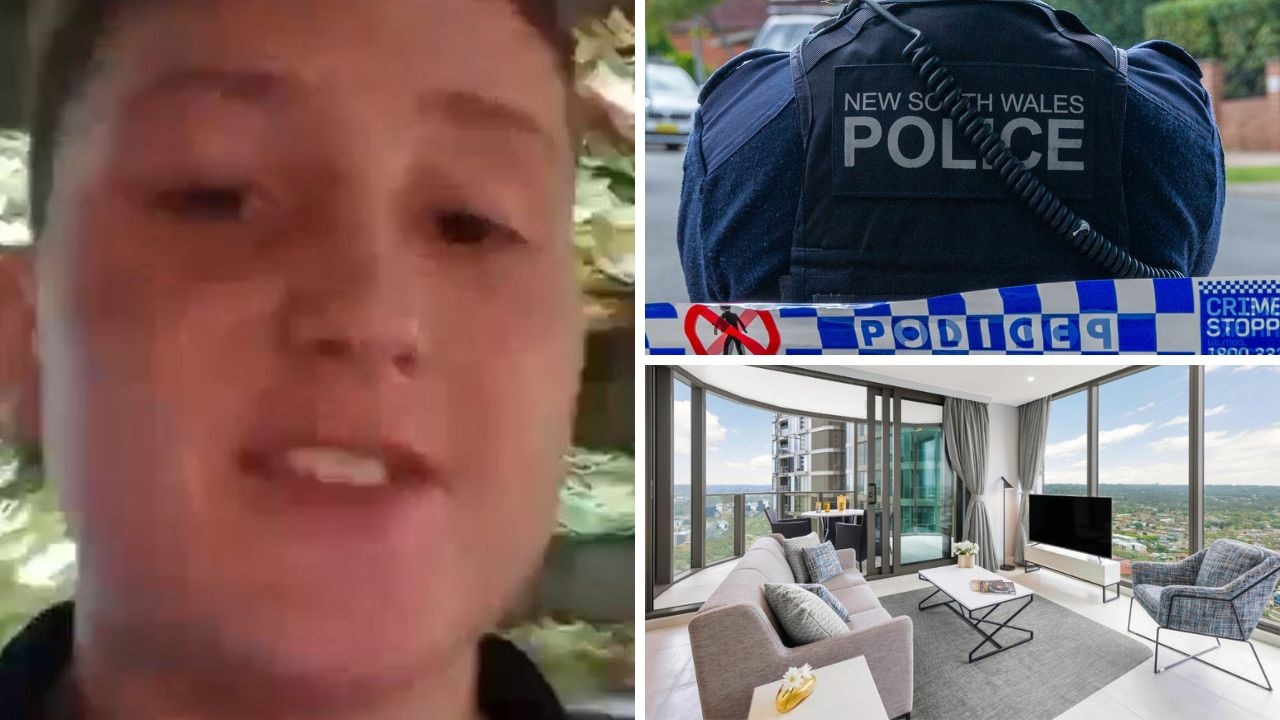Over the past three months, Jo-Ellen Hall has made more than 40 phone calls to New South Wales Police over the investigation into her teenage nephew’s bizarre death.
All but two of those calls, made in hopes of getting an update on the case and to pass on information Ms Hall believes is crucial, have been ignored, according to Ms Hall.
She said the deafening silence has compounded her immense grief and left her with countless unanswered questions.
“It’s infuriating,” Ms Hall told news.com.au. “How they’re treating me just feels so cruel.”
Tyler Mason fell to his death from a balcony on the 35th floor of the Meriton Suites on George Street in Parramatta late in the evening on March 14.
A news.com.au investigation drawing together extensive details from multiple sources, comprising audio recordings, vision, text and instant messages, has pieced together a mysterious timeline of events.
It has also revealed apparent inconsistencies in the accounts of what happened that night, raising the concerns of the 15-year-old’s distraught family.
Tyler was one of five minors partying unsupervised in a hotel room, along with an 18-year-old, to celebrate a friend’s 16th birthday. It’s understood things spun out of control, with a knife brandished, a bathroom door kicked in, and at least one instance of physical violence.
Despite having consumed three drinks over about five hours, Tyler became extremely unwell. He vomited, lost control of his bladder, lost consciousness several times, and couldn’t walk or talk, it has been established.
However, it has been claimed he managed to run through the room, out onto a balcony, climb over the rail and jump at about 11.28pm.
It’s understood police quickly determined the tragedy a likely suicide, but that conclusion didn’t sit well with Ms Hall, who is a mental health nurse.
She called police within days of her beloved nephew’s death.
“I rang every day for three or so weeks until I finally got to speak to [someone],” Ms Hall, who is Tyler’s declared next of kin, said.
“I was simply told it was a suicide and there was nothing more to do.”
As rumours swirled and revelations emerged, Ms Hall began compiling materials she believed were relevant to the investigation.
Dozens of phone calls in the months since have been ignored, she feels, as well as a number of emails.
“It’s inhumane,” Ms Hall said of the lack of contact with police.
“At one point I called and asked to speak to the sergeant and was told, ‘We can’t just hand you up to the sergeant for nothing’. This isn’t nothing.
“I tried again [last week] and got the sergeant, who said he would order [someone] to speak to me. I was never called. I’d like a good rapport with police, but this is just wrong.”
She has also spoken with the office of the coroner, who she said have been good to deal with and have promised to forward her materials to police for review.
At the time of his death, Tyler was living in state care at a monitored residential facility in western Sydney.
The death of a child in care is automatically examined by the Department of Communities and Justice’s Serious Case Review Unit, as well as the NSW Ombudsman.
The coroner is also obliged to conduct an investigation, but is not compelled to carry out a full public inquest unless it’s deemed necessary.
Following a subsequent inquiry about Ms Hall’s difficulty communicating with officers, a spokesperson denied she had been shut-out or that the conduct of police had been lacking.
In a statement, a NSW Police spokesperson said: “Police have continued communication with the next of kin throughout the investigation to provide support as well as guidance regarding the coronial process, and will continue to do so.
“The matter remains an open investigation and police are currently preparing a comprehensive brief of evidence which will be delivered to the coroner in due course.
“Determination of the manner of death is ultimately a decision for the coroner.”
Ms Hall disputes that she has been adequately communicated with over the past three months.
